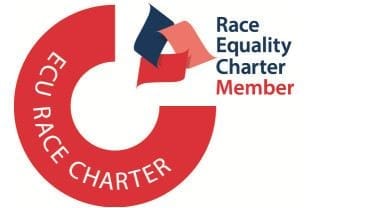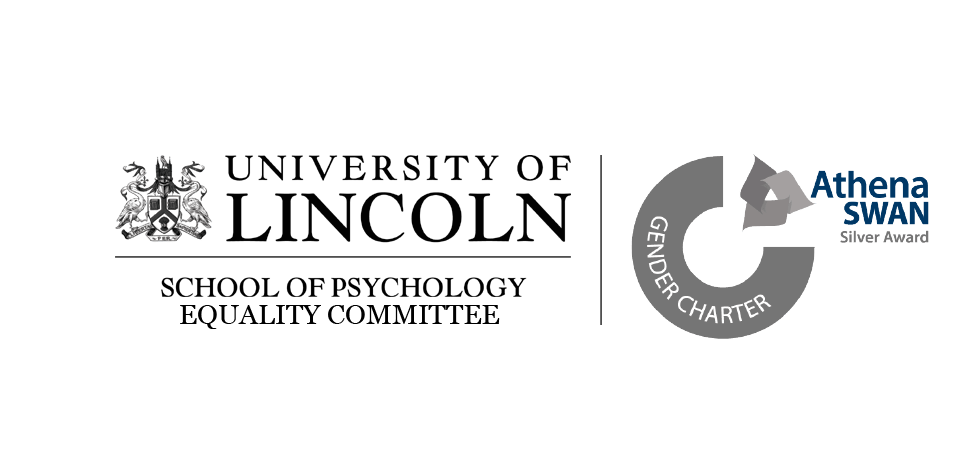
SPEC is committed to engaging with the UK Equality Charters. These enable organisations to apply for an award recognising their commitment to, and progress on, equality and diversity. The charters aim to drive forward the cultural and systemic changes needed if institutions are to remain competitive and attractive to talented staff and potential students in a global market. The School of Psychology has been recognised for championing gender equality in the workplace with an Athena SWAN Silver award. Further details of the application will be available here soon.
Our bronze application was spearheaded by Co-Chairs Dr Amanda Roberts and Dr Kirsten McKenzie with support from the then Head of School, Professor Tim Hodgson. The award was officially presented at the Athena SWAN Awards Ceremony on Monday 12th December 2016 at the University of Liverpool. The Athena SWAN panel commended the School on a range of initiatives, including supporting early careers researchers, funding and application development, ensuring gender equality across a range of activities, and engaging directly with students to improve their experience. You can view the application here:
Athena Swan Charter

ECU’s Athena SWAN Charter was established in 2005 to encourage and recognise commitment to advancing the careers of women in science, technology, engineering, maths and medicine (STEMM) employment in higher education and research. In May 2015 the charter was expanded to recognise work undertaken in arts, humanities, social sciences, business and law (AHSSBL), and in professional and support roles, and for trans staff and students. The charter now recognises work undertaken to address gender equality more broadly, and not just barriers to progression that affect women.
The University of Lincoln signed up to the Athena SWAN Charter in 2008, and more recently, in 2016, to the Gender Equality Charter. By being part of Athena SWAN, the School of Psychology has committed to adopting the 10 key principles within our policies, practices, action plans and culture:
- We acknowledge that academia cannot reach its full potential unless it can benefit from the talents of all
- We commit to advancing gender equality in academia, in particular, addressing the loss of women across the career pipeline and the absence of women from senior academic, professional and support roles
- We commit to addressing unequal gender representation across academic disciplines and professional and support functions. In this, we recognise disciplinary differences including the relative underrepresentation of women in senior roles in arts, humanities, social sciences, business and law (AHSSBL) the particularly high loss rate of women in science, technology, engineering, mathematics and medicine (STEMM)
- We commit to tackling the gender pay gap.
- We commit to removing the obstacles faced by women, in particular, at major points of career development and progression including the transition from PhD into a sustainable academic career.
- We commit to addressing the negative consequences of using short-term contracts for the retention and progression of staff in academia, particularly women.
- We commit to tackling the discriminatory treatment often experienced by trans people.
- We acknowledge that advancing gender equality demands commitment and action from all levels of the organisation and in particular active leadership from those in senior roles.
- We commit to making and mainstreaming sustainable structural and cultural changes to advance gender equality, recognising that initiatives and actions that support individuals alone will not sufficiently advance equality.
- All individuals have identities shaped by several different factors. We commit to considering the intersection of gender and other factors wherever possible.
Gender equality is an issue that affects everyone, and gaining this recognition from Athena SWAN demonstrates our commitment to providing an inclusive and positive environment for everyone. We are extremely proud of this achievement and look forward to furthering our engagement with Athena SWAN going forward
Dr Kirsten McKenzie, former Chair
Race Equality Charter

The ECU began developing the Race Equality Charter (REC) in 2012 after the success and impact of Athena SWAN on gender equality. REC addressed a growing appetite for a race-specific charter within the sector, and many of ECU’s key stakeholders were actively supportive of its development. REC now provides a framework through which institutions work to identify and self-reflect on institutional and cultural barriers standing in the way of minority ethnic staff and students, and is underpinned by five key principles:
- Racial inequalities are a significant issue within higher education. Racial inequalities are not necessarily overt, isolated incidents. Racism is an everyday facet of UK society and racial inequalities manifest themselves in everyday situations, processes and behaviours
- UK higher education cannot reach its full potential unless it can benefit from the talents of the whole population and until individuals from all ethnic backgrounds can benefit equally from the opportunities it affords
- In developing solutions to racial inequalities, it is important that they are aimed at achieving long-term institutional culture change, avoiding a deficit model where solutions are aimed at changing the individual.
- Minority ethnic staff and students are not a homogenous group. People from different ethnic backgrounds have different experiences of and outcomes from/within higher education, and that complexity needs to be considered in analysing data and developing actions.
- All individuals have multiple identities, and the intersection of those different identities should be considered wherever possible.

